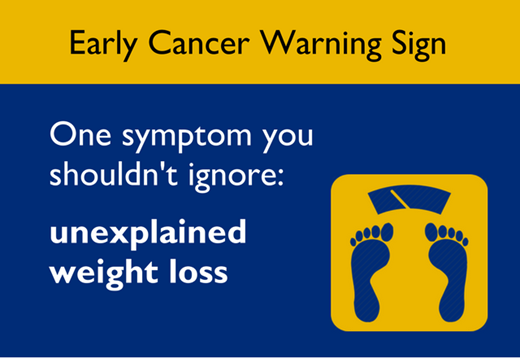What are the Early Symptoms of Cancer:
2 min read
Recognizing the Warning Signs for Early Detection and Treatment
Early detection is crucial when it comes to cancer, as it greatly improves the chances of successful treatment and recovery. Recognizing the warning signs and symptoms of cancer in its early stages can be a life-saving measure. By understanding the early symptoms, individuals can take prompt action and seek medical attention, potentially preventing the disease from progressing to an advanced stage.
Unexplained Weight Loss: Sudden and unexplained weight loss, especially if it occurs without any changes in diet or exercise, can be an early sign of various types of cancer. This weight loss may be accompanied by a loss of appetite and should not be ignored.
Fatigue and Weakness: Persistent fatigue and weakness that cannot be attributed to any particular reason or lifestyle changes should be taken seriously. While fatigue is a common symptom for many illnesses, it can also be an early indication of cancer.
Persistent Pain: Unexplained and persistent pain that does not improve with time or treatment should not be ignored. This includes ongoing headaches, back pain, abdominal pain, or bone pain. While these symptoms can have various causes, they should be investigated further to rule out the possibility of cancer.
Changes in the Skin: Any noticeable changes in the skin, such as the appearance of new moles, changes in existing moles, or the development of sores that do not heal, should be examined by a healthcare professional. Skin changes can be early signs of skin cancer or other types of cancer.
Changes in Bowel or Bladder Habits: Frequent changes in bowel movements, such as persistent diarrhea or constipation, or changes in bladder habits, such as increased urgency or blood in urine, should not be ignored. These changes can be indicative of colorectal, bladder, or kidney cancer.
Persistent Cough or Hoarseness: A chronic cough that lasts for more than a few weeks, or a hoarseness that does not improve, should be evaluated by a doctor. These symptoms can be early signs of lung or throat cancer.
Unexplained Bleeding: Any unexplained bleeding, such as blood in the stool, urine, or coughing up blood, should be investigated promptly. These symptoms can be indicative of various types of cancer, including colorectal, bladder, or lung cancer.
Difficulty Swallowing or Indigestion: Persistent difficulty swallowing or ongoing indigestion that does not improve with medication or lifestyle changes should be examined further. These symptoms can be early signs of esophageal or stomach cancer.
It is important to note that these symptoms can also be caused by other non-cancerous conditions. However, if any of these warning signs persist or worsen, it is crucial to consult a healthcare professional for a proper evaluation and diagnosis. Early detection and treatment can significantly improve the chances of successful cancer management and recovery.








